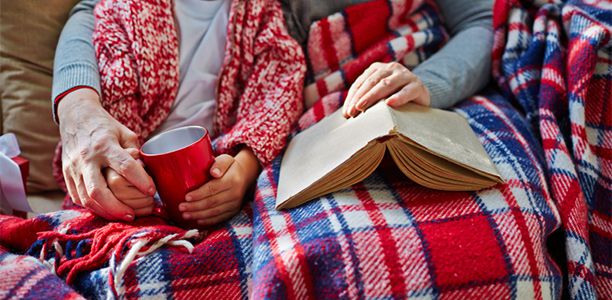NSW Fair Trading Commissioner Rod Stowe said consumers should consider several cold weather safety warnings as temperatures start to drop with the onset of autumn and pay heed to recent heater recalls of dual burner butane stoves.
“Winter is coming,” he said. “Stay warm safely by observing safety cautions and warnings on your purchases.”
Carbon monoxide (CO) is a silent killer, so beware of the potential risks in using some forms of gas heating. Do you get headaches in winter when using heaters? Dizzy? Have you had your gas heater serviced?
Faulty or poorly maintained gas appliances can produce deadly carbon monoxide. Always have a source of fresh air entering the room when using un-flued gas heaters. Check on your elderly relatives because they may not realise their heater could be making them unwell. Don’t use un-flued heaters in bedrooms.
Gas heaters must be certified and should be serviced every two years or in accordance with the manufacturer’s instructions. If a gas heater produces a pungent odour, a sooty flame or the flame is yellow in colour, stop using it immediately and get it serviced.
In October 2014 NSW Fair Trading announced a ban on the sale of certain models of area (outdoor) gas heaters due to non-compliance with the Australian Standard. Factsheet attached. Consumers need to be aware of the risks of bringing outdoor heaters inside. A Ballarat man died in 2012 after bringing one of the banned area heaters indoors.
There is a current warning about Cannon Fitzroy and Canterbury Inbuilt Gas Heaters, built between 20 March 2001 and 8 October 2009. These heaters can produce potentially hazardous levels of carbon monoxide if the heater is subject to certain conditions including the operation of range hoods and other exhaust fans. If you think you have one of these heaters, call Cannon on 1800 035 410. Do not use your heater until it is checked. 20,000 were sold nationally.
Also beware banned and dangerous gas cabinet heaters (see the video here). A Rockdale trader was fined $1500 last year after she sold a prohibited gas cabinet heater that caused a fire in a Rose Bay unit.
Mr Stowe said burning charcoal can also give off carbon monoxide and be lethal. Consumers should never burn charcoal indoors, or in vehicles or tents.
Don’t bring heat bead bbqs indoors. The amount of charcoal briquettes required to produce toxic concentrations of CO is quite small — about the amount normally used in conventional barbecues.
Don’t place room heaters too close to furniture, clothing, furnishings, curtains and bedding. Don’t allow children or pets to play, stand or sit too close to heaters. Supervise them at all times around heaters.
Check that electric heaters are free from dust build-up and have intact power cords and plugs. Older style heaters with rusted reflectors or frames can cause hot spots and be a source of danger.
Fair Trading has issued a number of warnings about recalled and dangerous electric heaters, including plastic bodied fan heaters.
These heaters may be used intermittently for guest or supplementary heating, and can be stored for extended periods of time. It is important to check to ensure they are not a recalled item.
Fair Trading has also previously warned the public about butane gas cookers. Recent recalls include Campmaster and Wildcountry dual burner butane stoves. For details click here.
A list of all recalled heaters can be found at the recalls site.
When buying electrical products, check they carry the required safety approval mark. Check approval marks at www.fairtrading.nsw.gov.au. Only use appropriately licensed installers of fixed heating appliances. Do a licence check on tradespeople by referring to the Fair Trading website or call 13 32 20.
All children’s nightwear/sleepwear sold in NSW must carry labels based on the fire risks associated with the product.
Recommended children’s nightwear should be form-fitting and made of material labelled ‘low fire danger’. Don’t dress children in flowing clothing that may come into contact with heaters. Be careful with dress-up items made of synthetic fabrics that are often very flammable.
Wheat bags are designed to heat bodies, not beds and may spontaneously ignite when placed in bedding. Don’t overheat wheat bags or gel heat packs by placing them in the microwave longer than the period of time specified by the manufacturer. Don’t leave them unsupervised in the microwave. Don’t reheat wheat bags before they have properly cooled. A wheat bag should be cooled down on a non-combustible surface before storing.
Fair Trading is also warning consumers about the dangers associated with wheat bags marketed to look like plush toys. These products are priced from $8 to $20 and are available in child appealing characters including lady bugs, cows, ducks, tigers, pigs, hippos, giraffes and puppy dogs. There are a number of companies importing these products that are marketed for children. Therefore there is a risk of them being given to children to take to bed to keep them warm.
Hot water bottles are also subject to product safety standards. Only purchase hot water bottles that carry the mandatory label: WARNING – Hot water bottles can cause burns. Avoid prolonged direct contact with the skin. Check for damage. Hot water bottles that are old, show signs of wear or are not used properly can burst or leak, resulting in severe burns. Ideally, buy new hot water bottles every winter.
Fair Trading suggests people consider using a good quality, approved electric blanket as the safest alternative to heat bedding. These products are designed specifically for heating bedding and are regulated electrical articles subjected to safety tests. Electric blankets should be checked each winter for faults and frayed cords.



 (2 votes, average: 4.00 out of 5)
(2 votes, average: 4.00 out of 5) 






